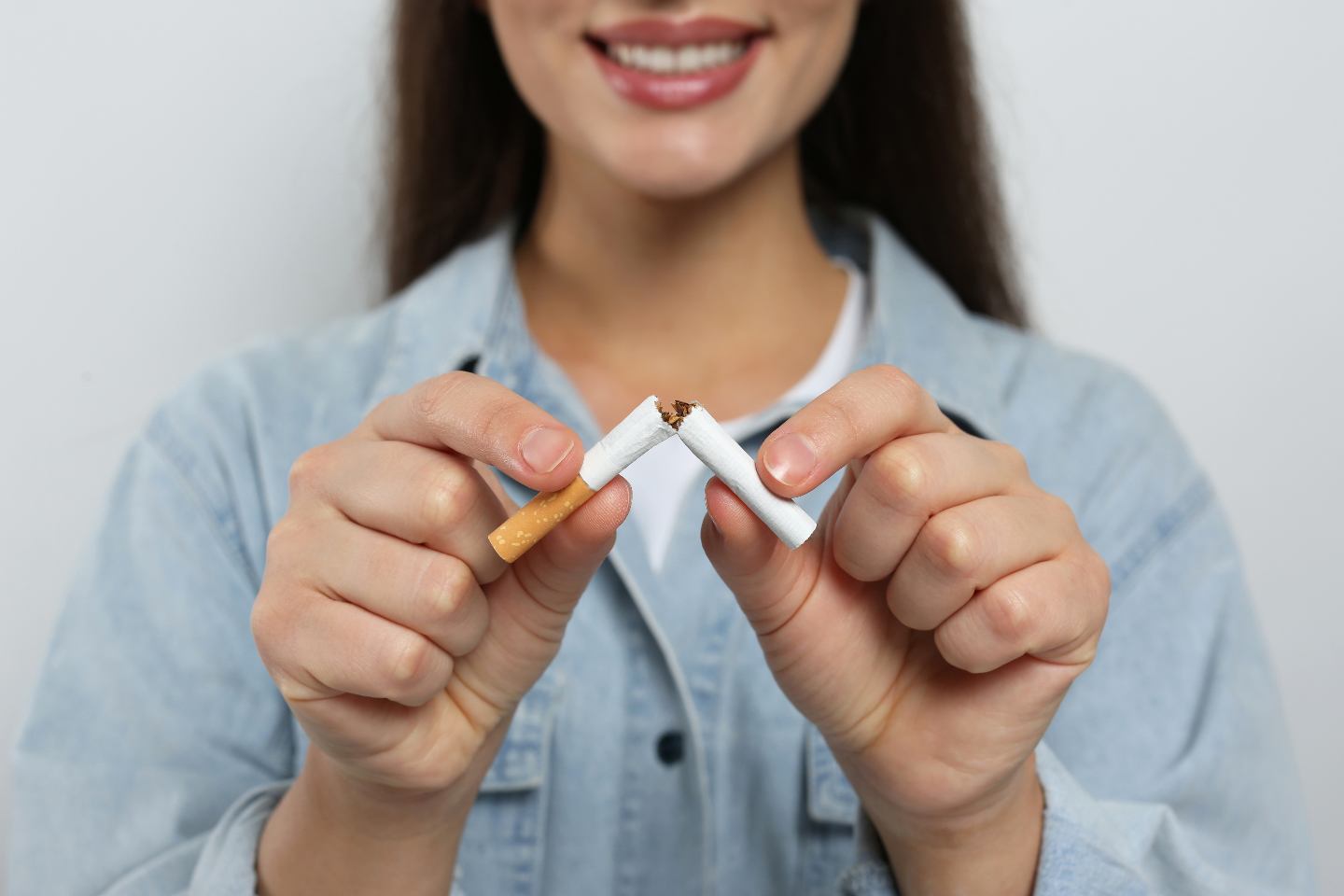Smoking Cessation

Quitting smoking is one of the most important things you can do to improve your health, including your oral health. It’s true that quitting smoking can be a daunting task, but there are steps you can take to start you on the path to a smoke-free lifestyle.

You can try nicotine replacement therapy (NRT). There are several to choose from including over-the-counter patches, gum, and lozenges. Prescription inhalers and nasal sprays are also available.
Talk to your healthcare provider about prescription pill medications.
There are several counseling options available to aid your in your goal to becoming smoke-free:
- Individual or group counseling
- Telephone quitlines, like 1-800-QUIT-NOW
- Free online resources, like CDC.gov/quit and SmokeFree.gov
- Free text programs, like SmokeFreeTXT
- Mobile apps, like quitSTART
Smoking weakens your body's immune system, making it harder to fight off a gum infection. Once you have gum damage, smoking also makes it harder for your gums to heal. Tobacco in any form increases your risk of gum disease.
You have twice the risk for gum disease compared with a nonsmoker.
The more cigarettes you smoke, the greater your risk for gum disease.
The longer you smoke, the greater your risk for gum disease.
Treatments for gum disease may not work as well for people who smoke.

This page is for informational purposes only. This clinic does not endorse or recommend any one approach to quitting smoking. Please consult your healthcare provider before starting any prescription or other medicinal means of quitting smoking.
Want to learn more?
The CDC provides many resources to help you quit smoking.